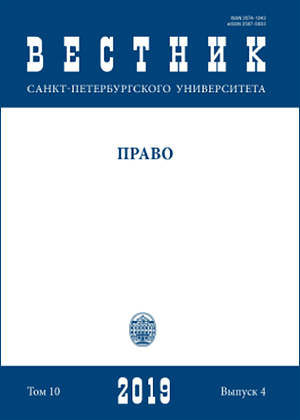Budget financing of educational mechanisms for the process of digitalization of the economy
DOI:
https://doi.org/10.21638/spbu14.2019.403Abstract
The article is devoted to the study of the mechanism for subsidizing activities outlined by the national projects “Digital Economy” and “Education.” The current budget legislation allows for the possibility of subsidizing legal entities involved in the implementation of national projects in various forms, depending on the legal categorization of the recipient of the subsidy. Achieving the goals of national projects, aimed at creating new information products, requires the selection of adequate fiscal instruments. Training specialists for a transforming economy is an essential component of the content of national projects. The article suggests that while maintaining the existing system of financing educational institutions, there is hardly any basis for the expectance of quick results in the appearance of specialists who are ready to work in the digital economy. Under certain conditions, grant methods of subsidizing may turn out to be the most acceptable ways for financing activities of national projects. The authors examined the types of subsidies provided for in Articles 78 and 78.1 of the Budget Code of the Russian Federation, and the options for grants through the prism of their use in the interests of training personnel to ensure the digitalization of the Russian economy. As a result, the following main conclusions were made. Firstly, subsidies are not able to provide progress towards the digital economy. Secondly, the supervising bodies, the judicial authorities have difficulties in assessing evidence of compliance, non-compliance with the conditions. When financing activities of national projects, the current situation does not contribute to the accelerated development in the field of training specialists for the digital economy. Thirdly, for the grant form of financing the activities of national projects, an adequate control mechanism based on performance evaluation should be created.
Keywords:
national projects, the main manager of budget funds, subsidies to commercial organizations, subsidies for the performance of state tasks, subsidies “for other purposes”, grants in the form of subsidies, venture fund
Downloads
References
Downloads
Published
How to Cite
Issue
Section
License
Articles of "Vestnik of Saint Petersburg University. Law" are open access distributed under the terms of the License Agreement with Saint Petersburg State University, which permits to the authors unrestricted distribution and self-archiving free of charge.






